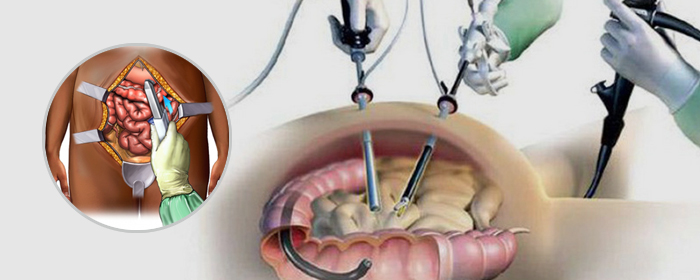Services
Colon & Intestine Surgery

Colectomy A colectomy is a surgical operation to remove part or all of your colon. It’s also called colon resection surgery. Your colon is part of your large bowel, which makes colectomy a type of large bowel resection.
Colon Your colon is part of your large intestine, where waste from the food you’ve been digesting is gradually solidified into poop. After your colon, your large intestine continues into your rectum and anus, where food waste exits your body.
Why is colectomy done?
You may need to have part or all of your colon removed for many different reasons. This can include cancers or diseases that can't be treated with medications. Removing the affected portion helps to ensure that the rest of your gastrointestinal tract can continue to function.
What happens when you have a colectomy?
The specifics of your colectomy surgery will depend on the type of operation you’re having and the surgical method being used. The operation will follow a general pattern, though.
General procedure
Put you to sleep under general anesthesia.
Make one or more incisions in your abdomen (belly area).
Carefully separate and remove the affected colon tissue.
Connect the healthy bowel ends using staples or sutures, or
Create a stoma and redirect your bowel end to the stoma.
Close your abdominal incisions.
Open vs. laparoscopic/robotic surgery
Your surgeon may perform your colectomy by traditional open surgery or by minimally-invasive laparoscopic surgery.
Open surgery: means opening up your abdominal cavity through one long incision. This method provides the easiest access to your organs and may be necessary when your case is more complicated, or if you are having emergency surgery.
Laparoscopic surgery: is performed through several small incisions, using the aid of a tiny video camera called a laparoscope. If you have a laparoscopic/robotic colectomy, your surgeon will begin with a single small incision, which is used to place the laparoscope. They'll pump gas through the incision to inflate your abdominal cavity for better visibility, then place the camera, which will project your organs onto a video screen. One or more additional small incisions will give your surgeon access to your colon with special tools.
What happens after colectomy surgery?
You’ll spend a few days recovering in the hospital before you’re discharged. It might be two days or up to a week, depending on what kind of operation you had and how you are doing. During this time, you’ll be:
Monitored for any signs of complications from the procedure.
Gradually weaned from your pain medication.
Fed with a liquid diet or soft diet.
Waiting for your bowels to begin functioning again.
Risks & Complications
Complications are rare, but they're always possible. Complications of colectomy may include:
Bleeding
Infection
Injury to nearby organs
Anastomotic leak
Recovery Time
Recovery at home takes up to six weeks. Many people get back to most of their usual routines within two weeks after surgery. Try to be extra gentle with yourself in the first few days after you get home. Getting up to walk around is good for you, but you may feel weak. Don’t try to do too much, too soon.